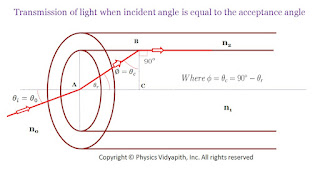A free electron cannot absorb all the energy of a Photon in mutual interaction.
Let us consider that a photon of energy $h \nu$ and momentum $\frac{h\nu}{c}$ collides with the free electron of mass $m$ at rest and the photon transfers its total energy and momentum to the electron. If $v$ is the velocity of the electron after a collision, its energy will be $ \frac{1}{2}mv^{2}$ and momentum $mv$.
If total incident energy $E$ absorb by an electron then applying the laws of conservation of energy and momentum, we have
Total energy before the collision= Total energy after the collision
$h \nu = \frac{1}{2}mv^{2} \qquad(1)$
According to de Broglie Hypothesis, the momentum of a particle
$P=\frac{h}{\lambda}$
$P=\frac{h \nu}{c} \qquad \left(\because \lambda=\frac{c}{\nu} \right)$
$mv=\frac{h \nu}{c} \qquad \left(\because P = mv \right)$
$h \nu = mvc \qquad(2)$
From equation $(1)$ and equation $(2)$
$\frac{1}{2}mv^{2}= m v c$
$\frac{1}{2}mv^{2}=m v c$
$v=2c$
Thus, the velocity of an electron comes out to be $2c$ which is not possible according to relativistic mechanics. Hence, a free electron cannot absorb all the energy of an incident photon.

